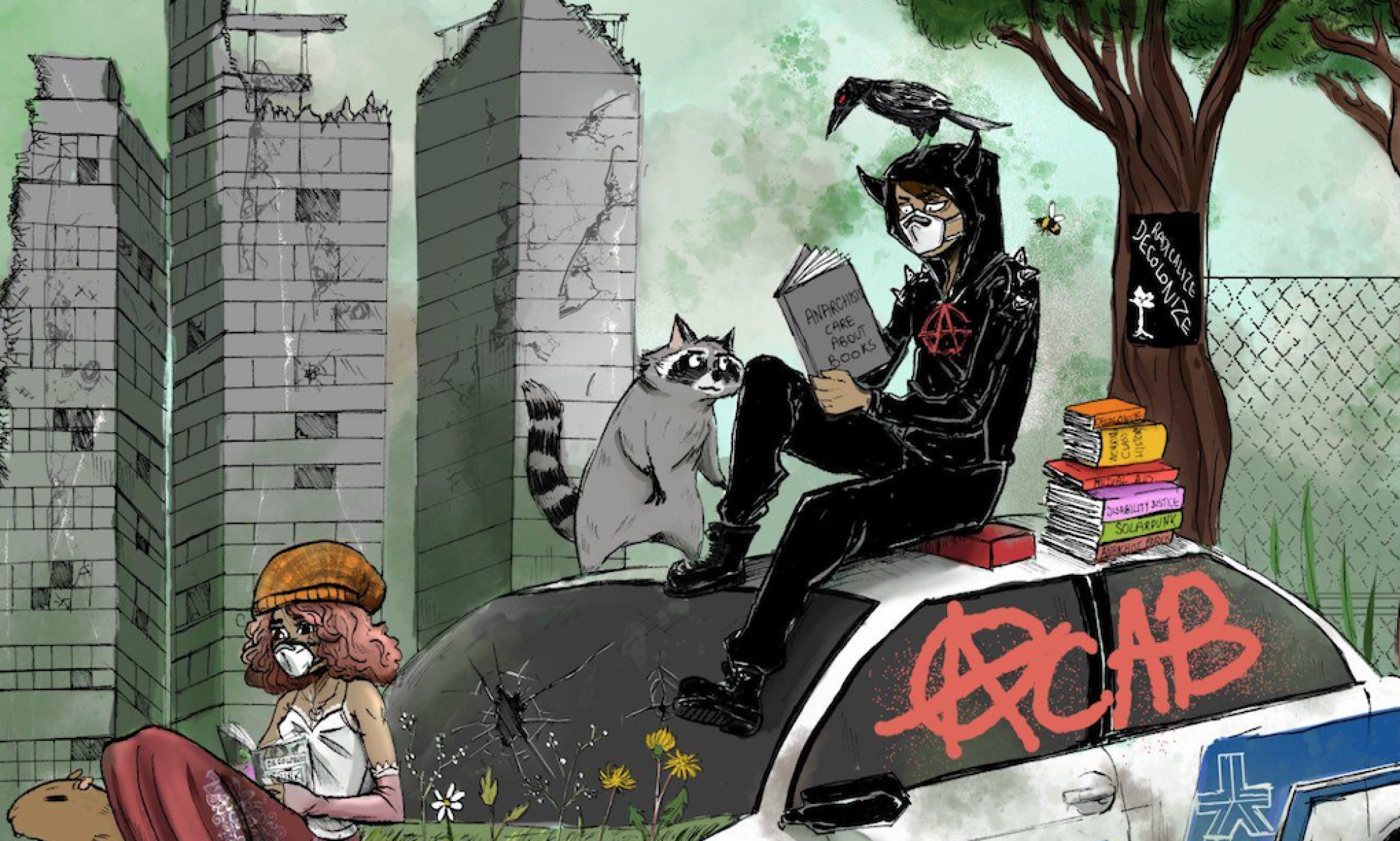The Montreal Anarchist Bookfair collective opposes all systems of domination and hierarchy, which necessarily includes white supremacy.
We work to make the bookfair as accessible as possible, and recognize that failing to adequately address instances of white supremacy is an issue of access. Over the years, one manifestation of white supremacy in particular—cultural appropriation—has meant that many people who feel the brunt of racialized oppression have felt unwelcome at the bookfair. We’re striving to change this as best we can, and part of this means trying to figure out better ways to concretely address cultural appropriation as it plays out at the bookfair.
One of the most common ways in which this occurs is through aesthetic choices such as non-Black people wearing “dreadlocks” and people non-Indigenous to Turtle Island wearing “Mohawk” hairstyles. While these are by no means the only ways in which cultural appropriation rears its head, we give these examples as they are things that have specifically and repeatedly been brought to the Bookfair collective’s attention over the years.
We’re not interested in policing people’s bodies, nor is it logistically feasible—or desirable—for us to monitor every person who attends the bookfair. As the collective is responsible for choosing the bookfair’s content, however, this year we’re trying to be more thoughtful in terms of who presents and tables. To the best of our capacity, we will not be accepting applications from people wanting to present or table if we know them to be making culturally appropriative choices in how they dress or behave.
The Montreal Anarchist Bookfair is more than just the collective; it’s on everyone who attends to think critically about how the choices they make (aesthetic and otherwise) might reflect systems of domination and hierarchy, and how that impacts others’ ability to attend. We ask you to think seriously before deciding to show up dressed or behaving in ways that are culturally appropriative. If it’s more important to you to wear your hair or dress any way you want, even if you know that might be a misrepresentation of someone else’s culture, maybe you should stay home.
Beyond trying to address instances of cultural appropriation as and where we can, the collective is also working to maintain the Montreal Anarchist Bookfair as a space that is more accessible to racialized people in the content we prioritize. This includes specifically giving more space to ABIPOC (Anarchist Black, Indigenous and People of Color), and specifically anticolonial and indigenizing content.
As always, the bookfair believes that popular education is an essential part of confronting and dismantling systems of control. If you want to learn more about cultural appropriation, or you’re not sure what we’re talking about here, check out the resources below or ask your local librarian!
The More You Know:
Answers for white people on appropriation, hair and anti-racist struggle (pdf), by Colin Kennedy Donovan and Qwo-Li Driskill
Cultural Appreciation or Cultural Appropriation? (pdf) by the American Indian Health & Family Services (AIHFS) in Detroit, USA
Are dreadlocks cultural appropriation? by The Overtake
White People with Dreadlocks, Cut it Out : A Black Anarchist Perspective on Cultural Appropriation, Solidarity and Black Hair Struggles, by BAT (BIPOC Anarchist Team)
TAROT
The Montreal Anarchist Bookfair collective strives to uplift and empower members from marginalized communities. Contrary to rumors, we’ve never banned tarot. But we encourage anyone who is selling or buying tarot cards at our events to be mindful of communities that have historically faced oppression in relation to the practice, in particular the Romani. We recommend the following article and podcast:
Romani Roots Of Tarot: The Untold History You Should Know | HuffPost Voices
Arcane Dames: Tarot & The Romani Community w/ Romanistan Podcast
